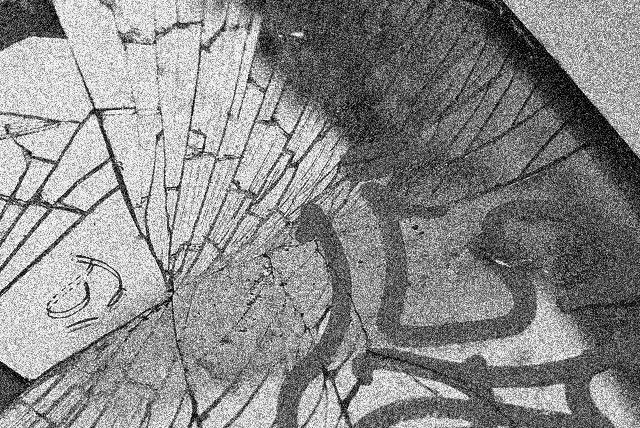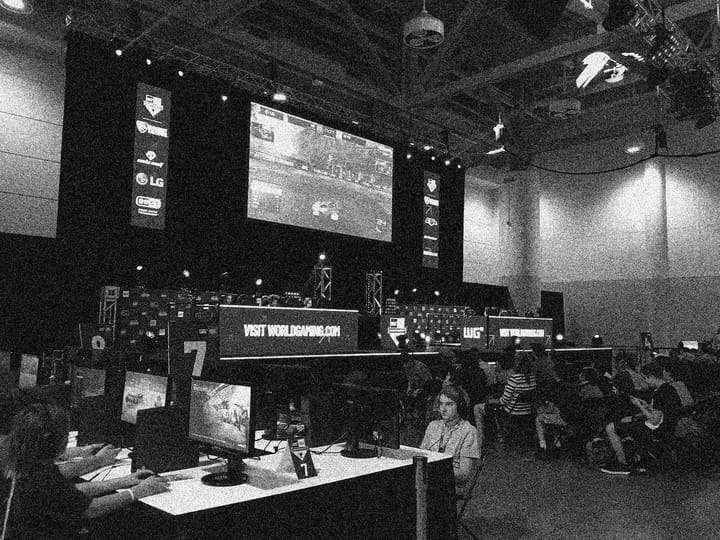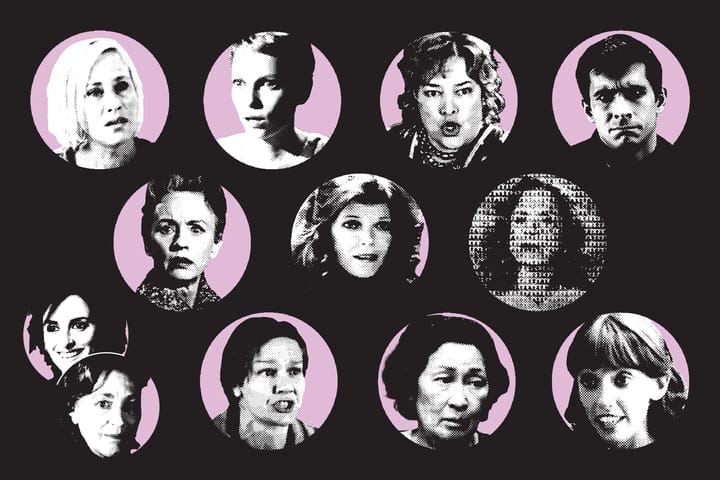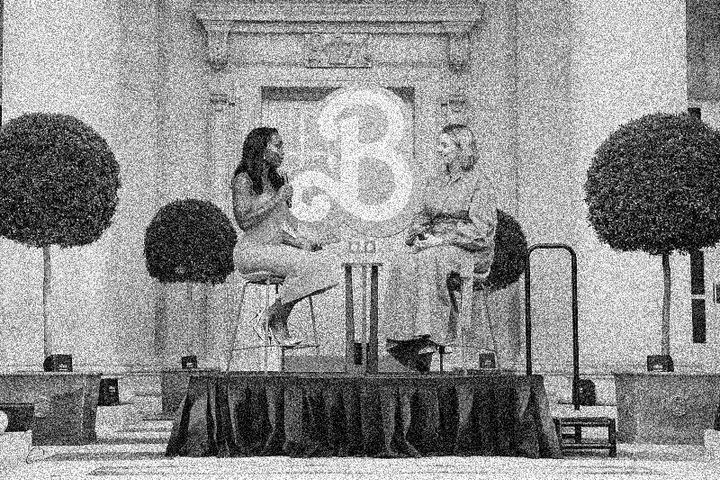Michelle Yeoh in the Multiverse of Me
A Review of Everything Everywhere All at Once.

Ursula Le Guin’s The Lathe of Heaven was written in 1971 as an acid with which to boil the ‘60s down into a primordial soup. It is the story of two men: the “effective dreamer” George Orr, whose dreams have the power to retroactively remake reality, and his therapist William Haber, who seems to control Orr’s power to his own ends. From page to page, reality changes in its fundaments—houses, wars, lovers, mountains, here one minute and then gone, not just disappeared but never existent.
But an odd comfort runs through the book, one that allows the reader to breathe the fresh Pacific Northwest air even while being rushed through a claustrophobic, calamitous universe. It flows from the simple fact that Le Guin has an idea and follows it through to the end. “What if someone had the capacity to change the world through their dreams?” That’s it, that’s the whole thought executed in the book. This being a tale of drug use, mental illness, and dreams, there are naturally moments where we are left to wonder whether we’re in reality or the confines of Orr’s head. But these speculations are never made to matter. We are never confronted with anything that would fundamentally trouble the underlying question.
The Daniels’ Everything Everywhere All at Once similarly propels its audience through infinite world possibilities, though with one overriding difference from Le Guin’s classic. The film’s main character Evelyn (Michelle Yeoh) is a struggling immigrant laundromat owner in a failed marriage who gains access to a multiverse in which she is a brilliant heroine. The personally shattering events of her real life—the arrival of her uncaring father, an impending divorce, confronting her daughter’s sexuality—appear refracted through the world ending events of her fantasy life. In this sense, Everything Everywhere All at Once is more psychologically honest than The Lathe of Heaven, but the film’s self-awareness never allows for lift-off. The Marvel movie banter and the directors’ inability to leave anything on the cutting room floor don’t help in this regard. But it is its core commitment to the psychological that leaves the movie wanting. We can only ever be in our heads—no doubt a kind of glorious lesson for the directors, but the equivalent of talking about great sex during sex for the viewers.
Still, the film crystallizes something helpful in its campiness and limitations. Today, everything is already everywhere and all at once. You can’t just follow an idea to its end because the idea is only something in its relation to other things, and you can’t know the thing until you have everything else it is related to in view. There can’t just be a multiverse that we might attempt to know. The multiverse for us can only ever be a fantastical expression of our multiversional selves. Universe-collapsing disaster is the same thing as having a mean father or not totally accepting that your daughter is gay (and fat).
We were primed by this sort of equivalence for the dominance of social media over our culture. Social media is the best access we will ever have to the multiverse. All possibility, no substance, balletic martial arts applied to the destruction of distinction and dignity. In this world, Michelle Yeoh can be both weak and strong, failure and heroine, old and hot. And fueling the whole universe is me and my struggle, put on display in raw cringe and veiled self-deprecation. It’s all of a piece, and it’s all connected by an awkward conversation I once had with my mom.
Le Guin understood that following her idea to the end would inevitably lead to nonsense. Small business owner aliens in turtle costumes selling figurines as an excuse for instituting a new gift economy of Beatles records. Perhaps this is a mirror to reflect back contemporary society or Orr’s psyche, but only if you really want to see something. We’re just in shift #46; next time it will be different.
The Daniels, by contrast, could never allow anything to float off into meaninglessness. The timeline where humans evolve with hot dog fingers somehow bears a lesson about Evelyn’s life. Even the one where the conditions for life do not pertain—still mother and daughter must kvetch at each other as rocks. The reduction to the psychological means that everything is meaningful. We are always already killing our fathers and fucking our mothers. It can’t be any other way.
A greater fidelity to the multiverse concept, and indeed the reason why it is so appealing in today’s culture, would mean exploring the truly psychotic break that a shift between multiverse selves would entail. If “you” could really cycle breathlessly between infinite iterations of “yourself”, prioritization between selves would be impossible. This would involve a kind of all-encompassing gamification—a grand way to have some perverse fun. Instead the film returns time and again to the “original” Evelyn, the Evelyn that we are supposed to care about, because the directors can only understand psychosis in terms of everyday suffering.
In trying to make sense of the strange version of adulthood that neoliberal society has produced, sociologist Jennifer Silva says that people today increasingly live in a “mood economy”—where one’s entire life worth is reduced to the kinds of things that might happen in therapy. It’s no longer about buying a house and saving for your kid’s college; it’s about not being an alcoholic like your dad or passive-aggressive like your mom. Le Guin was writing at the end of a period when oedipal struggle was being carried out in the world. The Daniels’ film captures a period when the world was reduced to oedipal struggle.
To fight against this form of reaffirmation of social reality under the veil of the “mind-bending” and “genre-defying,” we need today a cultural vanguard that is willing to take certain Dogme 95-type vows of chastity.
The film will not invoke the psychological.
The film will not resolve in common unhappiness.
The film will be made as if the phrase “intergenerational trauma” had never been uttered.
This would mean, amongst other things, reviving the principle of both the form and content of The Lathe of Heaven: the objectivity of fantasy. Having an odd thought and maintaining a Platonic belief in its independent existence, without reference to what it might mean to us sad contemporaries.
■
Benjamin Y. Fong writes about drugs, nonprofits, and children’s media.



